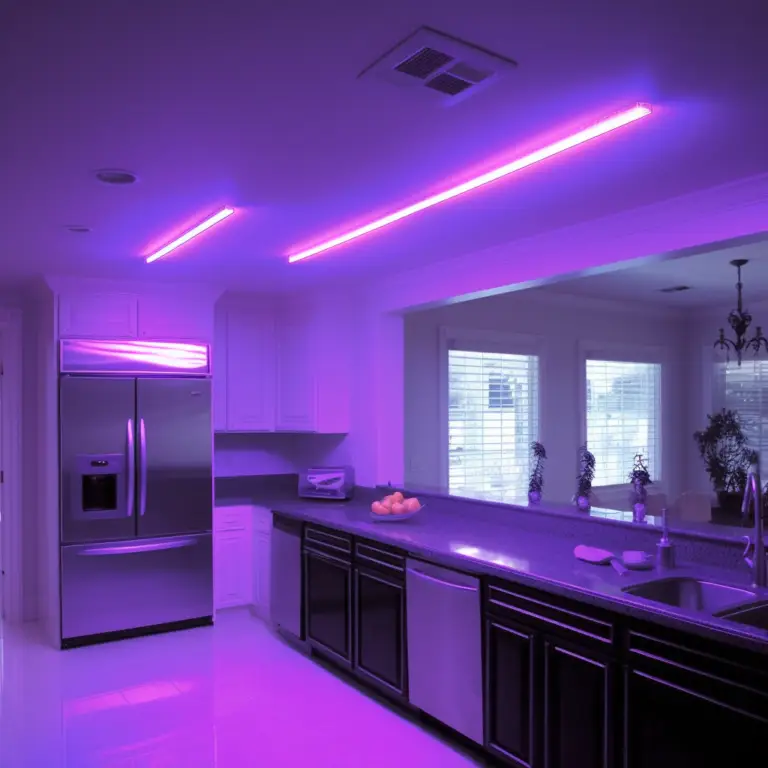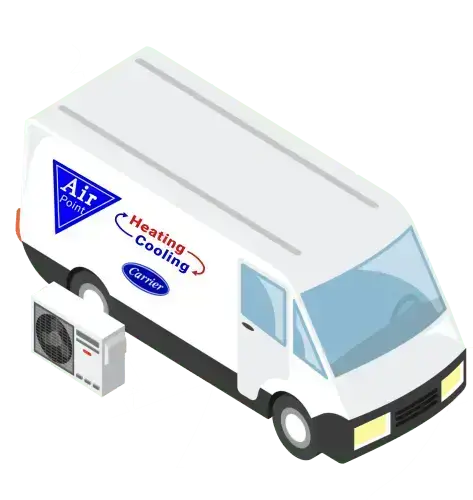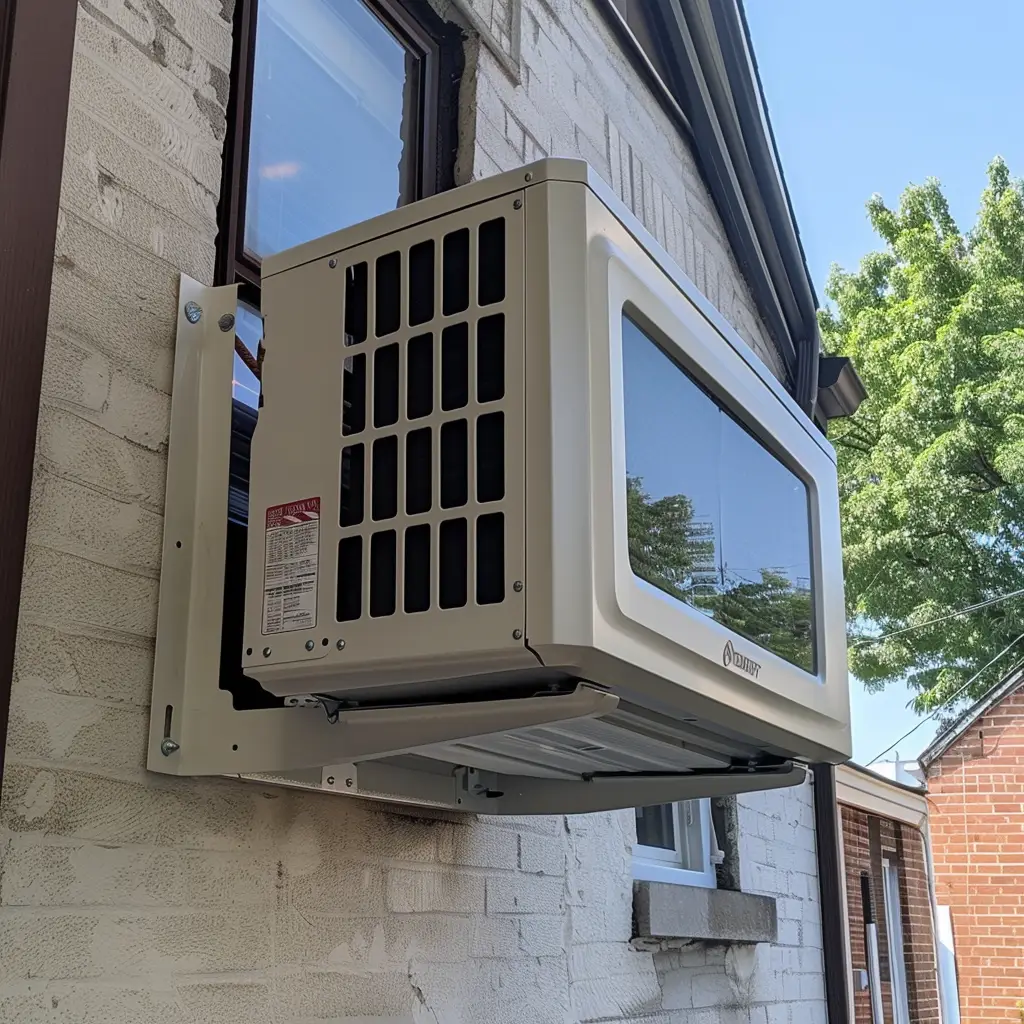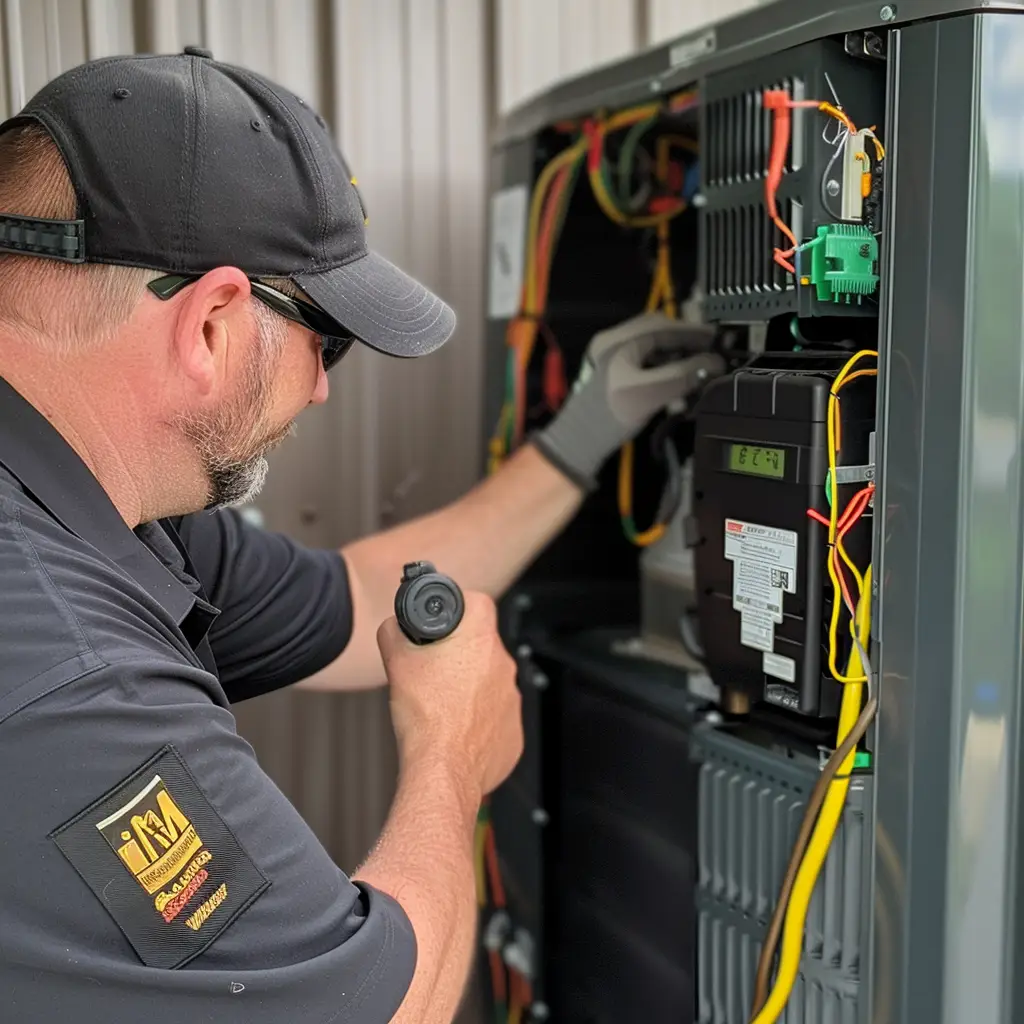Introduction
Have you ever wondered how to improve your indoor air quality and HVAC system efficiency? The answer lies in the power of ultraviolet (UV) light. This article will dive deep into the science behind UV light, its benefits for HVAC systems, installation, maintenance, safety, and potential alternatives. Keep reading to find out how UV light can make a difference in your home or office.
The Science Behind UV Light
What is UV Light?
Ultraviolet light is a form of electromagnetic radiation that lies between visible light and X-rays in the electromagnetic spectrum. It is invisible to the human eye and can be categorized into three types based on wavelength: UVA, UVB, and UVC.
Types of UV Light
- UVA: Longest wavelength, least harmful, can penetrate deep into the skin
- UVB: Medium wavelength, can cause sunburn and skin cancer
- UVC: Shortest wavelength, most germicidal, absorbed by the Earth’s atmosphere
How UV Light Kills Pathogens
UVC light has germicidal properties because it can destroy the DNA or RNA of microorganisms like bacteria, viruses, and mold spores. This damage prevents them from reproducing and effectively neutralizes them, making UVC light an effective tool for disinfection.
HVAC UV Light Benefits
Improved Indoor Air Quality
By installing a UV light system within your HVAC unit, harmful pathogens are neutralized before they can circulate throughout your home or office. This significantly improves indoor air quality, reducing the risk of allergies, asthma, and other respiratory issues.
Increased Energy Efficiency
UV light can also help prevent the buildup of organic matter on HVAC components, such as coils and filters. This ensures that your system runs more efficiently, leading to reduced energy consumption and lower utility bills.
Extended HVAC Equipment Lifespan
Keeping your HVAC system clean and free from organic buildup extends its lifespan, saving you money on costly repairs or replacements in the long run.
UV Light Installation
Choosing the Right UV Light System
When selecting a UV light system for your HVAC, consider factors such as the size of your HVAC unit, the specific pathogens you want to target, and your budget. Consult with a professional to determine the best option for your needs.
Professional Installation vs. DIY
While it may be tempting to install a UV light system yourself, it’s best to leave this task to professionals. They can ensure that the system is installed correctly and safely, optimizing its effectiveness.
Maintenance and Safety
Cleaning and Replacing UV Lamps
UV lamps should be cleaned regularly
to maintain their effectiveness. Dust and dirt can accumulate on the surface of the lamp, reducing the intensity of the UV light. Follow the manufacturer’s recommendations for cleaning and replacing the lamps to ensure optimal performance.
Safety Considerations
While UVC light is highly effective at killing pathogens, it can also be harmful to humans if not used properly. When installing a UV light system in your HVAC unit, it’s essential to ensure that it’s enclosed and not directly exposed to occupants. This will prevent any accidental exposure to UVC light, which can cause skin and eye irritation.
Alternatives to UV Light
If you’re looking for other options to improve your indoor air quality, consider these UV Light alternatives:
HEPA Filters
High-Efficiency Particulate Air (HEPA) filters can effectively remove 99.97% of airborne particles, including dust, pollen, and mold spores. They are a popular choice for allergy sufferers and can be used in conjunction with UV light systems.
Activated Carbon Filters
These filters use a bed of activated carbon to trap and remove volatile organic compounds (VOCs), odors, and other gaseous pollutants from the air. They can help improve indoor air quality by eliminating unpleasant smells and reducing harmful chemical exposure.
Electronic Air Cleaners
Electronic air cleaners, such as electrostatic precipitators and ionizers, use electrical charges to attract and trap airborne particles. They can be an effective solution for removing dust, pollen, and other allergens from the air, although they might not be as effective against viruses and bacteria.
Trust AirPoint for Enhanced HVAC Systems with UV Light Technology
In conclusion, incorporating UV light into your HVAC system can provide numerous benefits, from improved indoor air quality to increased energy efficiency and extended equipment lifespan. However, it’s crucial to choose the right system, have it professionally installed, and follow proper maintenance and safety guidelines.
At AirPoint, we are proud to be a Carrier factory authorized dealer and NATE certified in Toronto, ensuring you receive the highest quality products and services. Our commitment to excellence has earned us the HomeStars Best of the Best 2023 award and a 5-star rating on Google and HomeStars. All of our technicians are fully certified by TSSA, HRAI, and CSA, ensuring the highest level of expertise when installing UV light systems in HVAC units. Trust AirPoint to help you create a cleaner, healthier indoor environment.
To learn more about the benefits of UV Lights in HVAC Systems, watch this video by LookMold
Frequently Asked Questions About UV Light in HVAC Systems
How does UV light work in HVAC systems?
UV light, specifically UVC light, is installed within HVAC systems to neutralize harmful pathogens like bacteria, viruses, and mold spores by damaging their DNA or RNA. This improves indoor air quality and helps maintain a clean HVAC system.
Is UV light safe for use in HVAC systems?
Yes, UV light is safe when installed correctly in HVAC systems. The UV light should be enclosed within the unit to prevent accidental exposure to occupants, as direct exposure can cause skin and eye irritation.
How often should I clean or replace the UV lamps in my HVAC system?
Follow the manufacturer's recommendations for cleaning and replacing the UV lamps. Regular maintenance is essential for optimal performance and germicidal effectiveness.
Can I use UV light in conjunction with other air filtration methods?
Absolutely! Combining UV light with other air filtration methods, such as HEPA filters or activated carbon filters, can enhance indoor air quality and create a healthier living environment.
Is it better to have a professional install a UV light system in my HVAC unit?
Yes, it's best to have a professional install your UV light system. They can ensure that the system is installed correctly and safely, optimizing its effectiveness and preventing any safety hazards.





